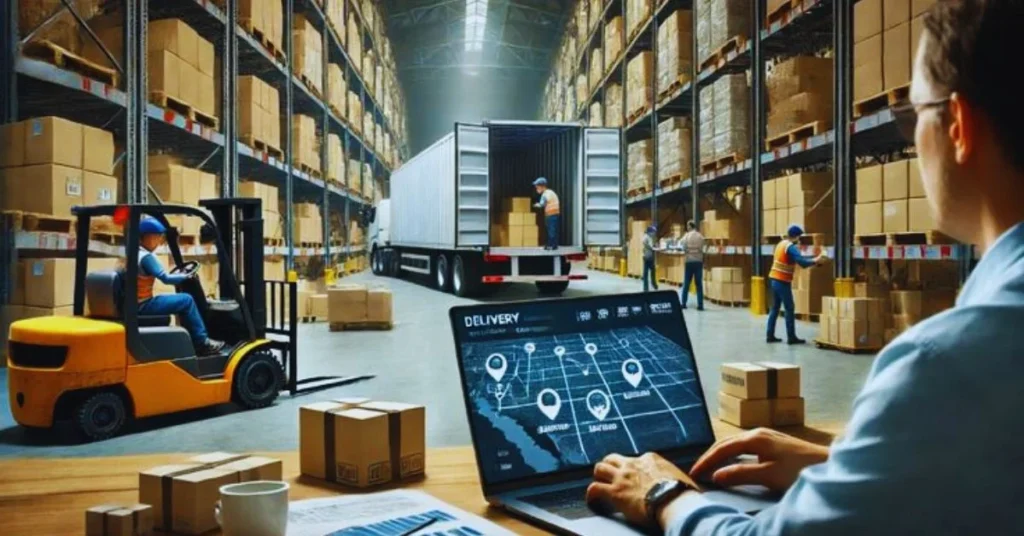Smart Supply Chain Solutions: Benefits, Challenges & Trends
Introduction to Smart Supply Chain Solutions
The way businesses manage their supply chains has changed dramatically over the past decade. Gone are the days when companies relied only on paper records, phone calls, and delayed updates. Today, Smart Supply Chain Solutions are transforming how goods move from suppliers to consumers. These modern systems use digital tools, real-time data, and automation to make supply chains faster, smarter, and more reliable.
In simple terms, a smart supply chain uses technology like sensors, artificial intelligence, and automation to monitor, predict, and optimize every step of the process. This shift is helping businesses cut costs, improve efficiency, and deliver better experiences for customers.
Key Technologies Driving Smart Supply Chains
Internet of Things (IoT)
IoT devices like sensors and trackers make it possible to monitor goods in real time. Whether it’s tracking the temperature of medicine during shipping or checking the location of a delivery truck, IoT provides instant updates and improves visibility.
Artificial Intelligence (AI) and Machine Learning (ML)
AI analyzes large amounts of data to help businesses make smarter decisions. For example, AI can predict product demand, suggest the fastest delivery routes, or even detect potential risks before they happen.
Blockchain Technology
Blockchain improves trust and transparency by creating secure records of every transaction in the supply chain. This makes it easier to verify product authenticity, track shipments, and reduce fraud.
Robotics and Automation
Robots are now widely used in warehouses to pick, pack, and move products. Automation reduces human error, speeds up processes, and ensures that orders are fulfilled accurately.
Cloud Computing and Big Data
Cloud platforms allow businesses to access data from anywhere, while big data analytics helps them understand patterns, customer behavior, and market demands. Together, these tools enable smarter planning and decision-making.
Also Read: Robotics and Automation: Transforming the Future
Core Components of Smart Supply Chain Solutions
-
Real-Time Tracking – Businesses can see where their products are at all times, reducing delays and improving communication.
-
Predictive Analytics – Using AI, companies can forecast future demand, helping them avoid stock shortages or excess inventory.
-
Smart Logistics – AI-driven route optimization, drones, and autonomous trucks help reduce delivery costs and time.
-
Warehouse Automation – Robotics and automated systems improve storage, picking, and order accuracy.
-
Supplier Management – Sharing data with suppliers builds stronger partnerships and reduces risks.
Benefits of Smart Supply Chain Solutions
-
Higher Efficiency – Automated systems speed up processes and cut down on manual work.
-
Cost Savings – By reducing waste, avoiding delays, and improving planning, businesses save money.
-
Smarter Decisions – Real-time data gives managers the insights they need to act quickly.
-
Better Customer Experience – Fast, accurate deliveries and real-time tracking keep customers satisfied.
-
Sustainability – Smart supply chains reduce energy use and support eco-friendly practices.
Challenges in Implementing Smart Supply Chains
-
High Costs – Setting up new systems, devices, and software requires a big investment.
-
Data Security – With so much information being shared, the risk of cyberattacks is higher.
-
Compatibility Issues – Many companies still use old systems that don’t work well with new technologies.
-
Skill Gaps – Employees need training to handle advanced tools and digital platforms.
Real-World Applications
-
Retail and E-commerce – Companies like Amazon use AI, robotics, and tracking tools to deliver orders faster.
-
Manufacturing – Smart factories use IoT to monitor machines and reduce downtime.
-
Healthcare – Blockchain ensures that medicines are genuine and stored correctly.
-
Food and Agriculture – Sensors help monitor crops, while blockchain provides traceability from farm to consumer.
-
Automotive Industry – Manufacturers use robotics and AI for efficient production and supply management.
Future Trends in Smart Supply Chain Solutions
-
Autonomous Supply Chains – With AI and automation, supply chains will eventually run with little human involvement.
-
Digital Twins – Virtual models of supply chains will allow businesses to test and improve processes before applying them in real life.
-
Sustainability Focus – Companies will adopt circular economy models to reduce waste and recycle resources.
-
Global Connectivity – Cloud-based systems will link supply chains across the world for seamless operations.
Conclusion
Smart Supply Chain Solutions are reshaping the way businesses operate. They bring together technologies like IoT, AI, blockchain, and automation to make supply chains more efficient, transparent, and customer-focused. While challenges such as costs and data security exist, the long-term benefits are too great to ignore.
In the coming years, we can expect supply chains to become even smarter, more sustainable, and more autonomous. Businesses that adopt these solutions today will gain a clear advantage in tomorrow’s competitive marketplace.



